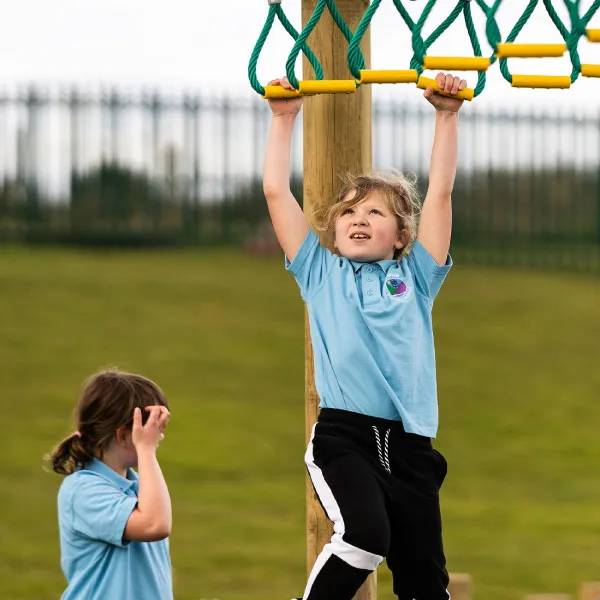Intent
As a core subject, English is central to the curriculum of Lingdale Primary School. It is our intention to provide all our pupils with an ambitious English curriculum and promote a passion for reading, writing and oracy. We aim to expose pupils to a wide range of quality texts, which will nurture a love of reading and an appreciation of language and tier two vocabulary. As well as promoting a love of reading, we endeavour to teach children about a variety of different authors and the language of books. We aim to ensure an entitlement for all pupils encouraging them to explore a range of genres whilst developing their own reader identity. All staff promote and foster curiosity and interest in words and their etymology as well as teaching children to be effective listeners and communicators who can justify their own opinions.
Our children are taught spelling rules and conventions whilst understanding there are usually exceptions to these rules. We expect pupils to produce writing that is joined, legible and neat; children strive for a pen license as soon as they enter Key Stage Two. In Early Years, priority is given to developing an effective pencil grip during the development of fine and gross motor skills in designated play areas and through specific teaching. Early Years is also the place where foundations for speaking and listening skills are built by identifying rhythm and syllables. Phonological knowledge is developed by the teaching of systematic synthetic phonics using Little Wandle. This complete systematic synthetic phonics programme (SSP) teaches children to decode (read) and encode (spell). Our systematic phonics provision allows the literary and wider world to open up to the children whilst meeting all the expectations of the National Curriculum and preparing children to go beyond the expectations of the Phonics Screening Check.
Implementation
English skills are taught every morning and -where appropriate – enforced in other afternoon subjects. Retrieval of knowledge and skills is regular and helps children to commit facts and vocabulary to their long -term memory.
Reading
We have embedded a Reading for Pleasure culture in school based on research by Professor Teresa Cremin which is visible from the moment you enter the building.
“Reading for pleasure is more closely associated with intrinsic motivation; it is reading that children do for themselves at their own pace, with whom they choose and in their own way.”
By creating a reading community pedagogy, we have discovered our pupils’ interests and identities and ensure our practice is reader- led, informal, social and uses texts that tempt. Our school library is a small but welcoming place; all classes have designated time to visit and it is open to families every Thursday after school. Parents can ask advice on how best to encourage reading at home and how to ensure children are understanding what they are reading.
In addition to reading at school, all pupils are expected to read daily at home. Pupils who bring in their signed home reading records at least three times a week are entered into our weekly Book Draw. The lucky winners from each class are allowed to choose a book, which is theirs to take home and keep.
Speaking and Listening
Equal emphasis is placed on speaking and listening skills across the curriculum. Children are encouraged to speak clearly and accurately from an early age and to be confident speakers in a range of situations. Listening is of paramount importance, as is the ability to ask appropriate questions. Drama is used to consolidate learning and poetry recital is encouraged. We believe that poetry can enhance language understanding and enjoyment.
Handwriting
As soon as children are ready, they are taught to sit properly at a desk with a focus on posture, a sharp pencil and a quiet environment. As they travel through their school journey, pupils strive to earn a handwriting pen and have to take a selection of their books to the English lead, who determines whether their presentation is good enough to make the leap from pencil to pen.
Writing
At Lingdale we teach our children to write for a variety of audiences and purposes, applying appropriate grammar and using clear and consistently joined handwriting. Grammar elements are taught in a logical manner and closely linked to the genre of writing being taught. Spelling rules based on the National Curriculum are taught as a separate lesson and spellings are sent home each week. High- level vocabulary is specifically taught and children learn how to incorporate it into their writing. Children receive feedback both orally and in a written form of marking. Teachers use a” tickled” pink pen to inform pupils what they like about their writing and a “ build on blue” pen to ask them to correct spellings or for target setting challenges. Children are given time at the start of lessons to “ respond to marking” which they do in a green pen.
Speaking and Listening/Oracy
Our aim is to ensure all pupils, regardless of their background, leave primary school being able to speak articulately and confidently. We believe that this is a life skill and time for speaking and listening is not only taught specifically but is also developed through pupil voice in School Council, collective worship, class assemblies, whole school productions, by inviting visitors into school regularly and through enrichment opportunities such as theatre visits and residentials where a “ debrief” is held nightly.
Assessment
Formative marking of work in English should be in line with the school’s Marking Policy. Summative assessment takes place in years 3-6 at the end of each full term using resources from The National Foundation for Educational Research (NfER).Any gaps are identified and built into future planning to ensure progress.
Monitoring and Evaluation/ Staff Development/Resources
The English lead and the Head Teacher monitor English by carrying out informal lesson drop ins and scrutinising of books . Staff are trained in the teaching of phonics and keep their subject knowledge up to date by attending staff meetings, online master classes, and by visiting other schools to see good and outstanding practice.
We are committed to providing pupils with high- quality resources both in and out of the classroom. We are developing our outdoor reading areas and have invested a lot of money on a variety of books in classrooms and the school library.
Inclusion
We are committed to ensuring all pupils receive Quality First Teaching (QFT) with activities differentiated appropriately and children with additional needs have the individual tools they need to ensure that they are “ the best that they can be”. We pride ourselves on identifying children with suspected special needs/ disabilities and therefore ensuring that interventions are swiftly provided. These interventions may take the shape of 1-1 support by teachers/ teaching assistants or after school/holiday boosting sessions.
Home/School Partnership
Families are given termly newsletters, which inform them of books we intend to read and visits/visitors we plan as enrichment opportunities. We encourage parents to sign a home/school agreement which specifies that they hear their children read a minimum of three times a week and sign their reading diaries accordingly. Winners of the book draw are announced on our weekly flyer which is emailed to all families. (Paper copies are provided on request.)
Impact
We are committed to ensuring ALL our pupils leave us able to read fluently and confidently and can write for a variety of purposes needed in the next stage of their learning. We expect all children to have lively imaginations and to know that they can all be authors if they so wish.
Our recent Ofsted report stated that:
The teaching of early reading is effective. Leaders ensure that the books that pupils use when learning to read match the sounds that they know. Leaders swiftly identify any pupil who is falling behind. They put support in place so that these pupils can catch up quickly. Reading is taught from the beginning of Reception. Here, teachers read daily to children and children enjoy reading. Leaders ensure that all staff follow the school’s phonics programme.



